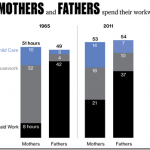
I’m working on my new book and just ran across this article, an ingenious project at Chapel Hill-Carrboro Schools, here in North Carolina. Jim Tomberg, a teacher at the High School has received a grant from state and federal funds, to establish a software development course for his school. The funds were intended to promote unique and innovative projects in education.
The high school students in the project were to create original, documented (software) to the specifications of teachers in the elementary grades. Tomberg wanted the programmers to work closely with the students and teachers receiving the (software).
To make the entire project educational, Tomberg says he “let the kids make all the decisions. They organized the whole course.” They studied various brands of computers and decided what equipment to buy. Then they came up with the idea of doing a newsletter about their study – all composed on computers using word processing programs.
The (elementary) teachers who requested material did, however, retain complete control over the content of the programs. In every case, students spoke directly with each teacher to insure useful results in the classroom.
Sheila Cory, the districts computer coordinator is quoted saying, “The computer is (forcing) us to reexamine our goals in education.”*
If you’d like to read the article, you’ll have to dig up a September 1983 issue of Compute Magazine, page number 100.
In many ways, I think that we were more innovative and even forward thinking back before computers and the Internet became mainstream.
* Blackford, J. (1983, September). Computers in school: New approaches. Compute!, (40), 100. Retrieved from http://www.atarimagazines.com/compute/issue40/computers_in_school.php



